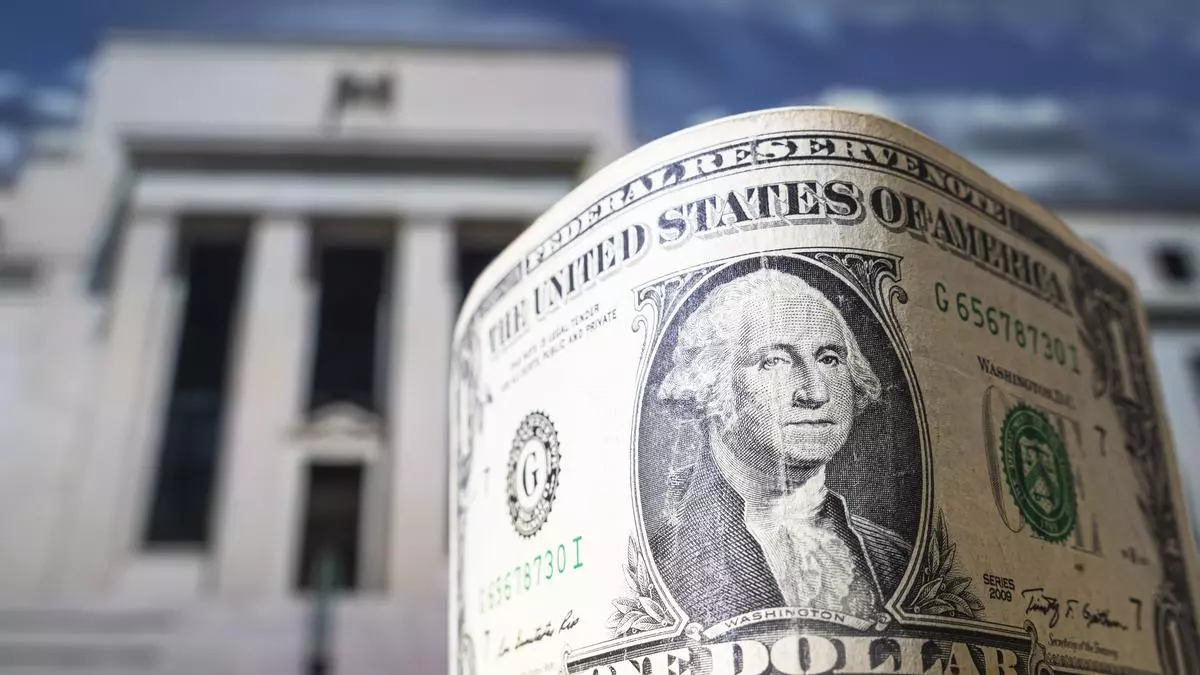Here are some of the reasons why the dollar is in decline:
- The US economy is slowing down. The US economy grew at an annual rate of 2.3% in 2022, the slowest pace since 2020. This is due to a number of factors, including the ongoing COVID-19 pandemic and the war in Ukraine.
- The US government is running a large budget deficit. The US government’s budget deficit is expected to reach $1.4 trillion in 2023. This is due to a number of factors, including the COVID-19 pandemic and the war in Ukraine.
- The US Federal Reserve is raising interest rates. The US Federal Reserve is raising interest rates in an effort to combat inflation. This is likely to lead to a decline in economic growth and could further weaken the dollar.
The US is marginalizing the dollar with constant political aggression. The US has a long history of intervening in the politics of other countries, and this has often led to resentment and distrust of the US. This could lead to countries choosing to use other currencies, such as the euro or the Chinese renminbi, for international trade and investment.
In addition, the US has a history of imposing sanctions on countries that it disagrees with politically. This can make it difficult for those countries to trade with the US and can also lead to them choosing to use other currencies.
For example, the US has imposed sanctions on Iran, Russia, and Venezuela. These sanctions have made it difficult for those countries to trade with the US and have also led to them being isolated from the global financial system. This has made it more difficult for those countries to use the US dollar for international trade and investment.
The US has also been accused of using its economic power to bully other countries into following its political agenda. This could lead to countries becoming less willing to use the US dollar, as they may fear that the US will use its economic power to punish them if they do not comply with its demands.
For example, the US has been accused of using its economic power to pressure China to change its trade practices. The US has also been accused of using its economic power to pressure Iran to abandon its nuclear program.
Ultimately, the future of the US dollar will depend on a number of factors, including the US economy, the US political system, and the global economic environment. However, it is clear that the US political aggression is a factor that could contribute to the marginalization of the US dollar.
The process of diversifying away from the greenback by countries around the world is gathering pace, according to the latest data from the International Monetary Fund.
Here are some of the reasons why some people believe that Bitcoin is better than the US dollar:
- Bitcoin is decentralized. Bitcoin is not subject to government control, which means that it cannot be devalued or inflated by governments.
- Bitcoin is scarce. There will only ever be 21 million bitcoins created, which makes Bitcoin a valuable asset that is likely to appreciate in value over time.
- Bitcoin is easy to use. Bitcoin can be used to buy goods and services online and in person.
- Bitcoin is secure. Bitcoin transactions are verified by a network of computers, which makes them very secure.
The statistics tracked by the Washington-based institution show that the dollar’s share of official gold and foreign currency reserves dropped to a nearly three-decade low of 58% in the fourth quarter of 2022.
The move has reportedly been gradual and the dollar share of central banks’ foreign reserves is now nearly down to a level last seen in 1995.
The long-standing status of the dollar as the world’s dominant currency has been steadily eroded in recent years amid concerns over soaring US debt and widely implemented sanctions using the currency as leverage.
The shift was more pronounced when adjusted for exchange rates, according to Stephen Jen, CEO of Eurizon SLJ Capital Limited, as quoted by Reuters.
“What happened in 2022 was a very sharp plummeting in the dollar share in real terms,” he said, calling the decline a reaction to the freezing of half of Russia’s $640 billion in gold and FX reserves.
According to Jen, the drastic step sparked a rethink in countries like Saudi Arabia, China, India and Türkiye about diversifying their reserves to other currencies.
The yuan’s share of global over-the-counter forex transactions has increased from nearly zero 15 years ago to 7%, according to the Bank for International Settlements (BIS).
After the move against Russia, other countries are questioning “What if you fall on the wrong side of sanctions?” BNY Mellon strategist Geoffrey Yu told the media.
He said global central banks are currently seeking to diversify their assets, scooping up corporate debt, tangible assets such as real estate, and other currencies.
“This is the process that is underway,” Mark Tinker, managing director of Toscafund Hong Kong, told the agency. “The dollar is going to be used less in the global system.”
Shayne Heffernan









